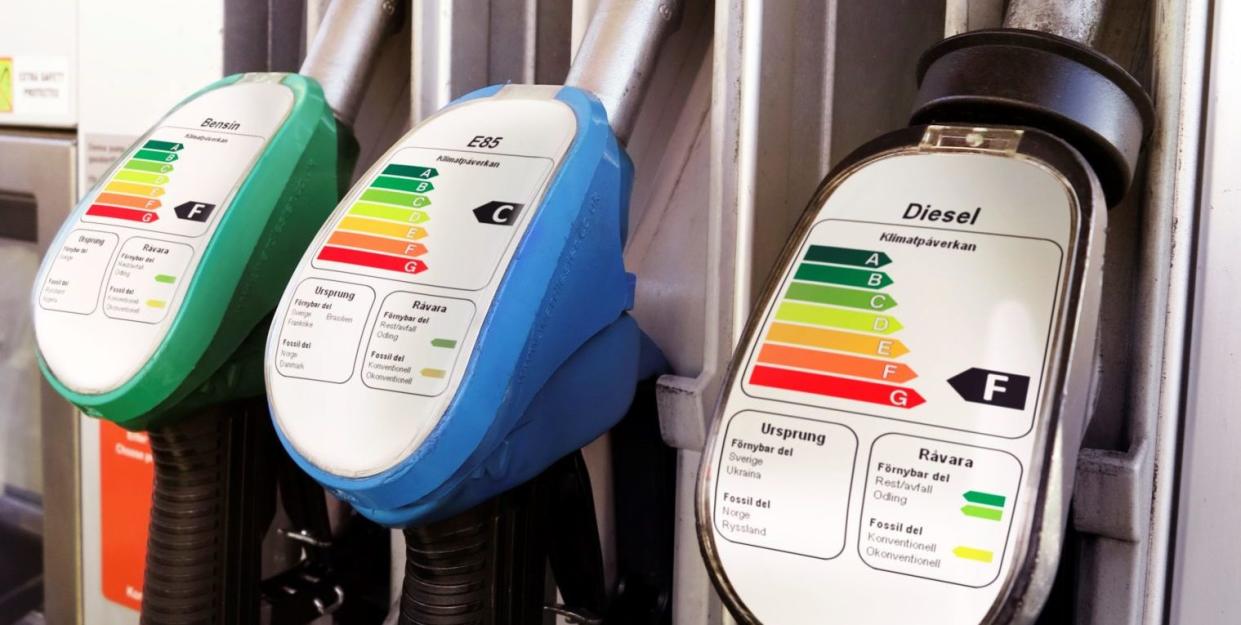Climate Experts Want Fossil Fuel Warning Labels At the Pump

Five environmental experts are calling for fossil fuel warning labels, which would be similar to tobacco warning labels, if adopted.
They expressed their opinion in an op-ed published to BMJ, a peer-reviewed medical journal, on March 31.
Gone are the days of the Marlboro Man and the glossy ads that make smoking Virginia Slims seem cool. Now the Surgeon General's warning could make a migration to fuel pumps, listing the level of emissions you'll contribute to the atmosphere with your purchase and the number of lives you could endanger.
Writing in an op-ed published earlier this week in BMJ, a peer-reviewed medical journal, five subject matter experts called for fossil fuel labelling to make clear the ramifications of driving traditional combustion-engine vehicles.
"We propose a low cost, scalable intervention to facilitate change in individuals' and society's views and behavior: warning labels at points of purchase of fossil energy or services dependent on large amounts of fossil fuel, for example at petrol stations, on energy bills, and on airline tickets," they wrote in the op-ed. "They should state clearly that continuing to burn fossil fuels worsens the climate emergency—with major projected health impacts increasing over time."

These warnings have the capacity to change unhealthy personal behaviors, the authors argue, which has curbed tobacco use and made it an unpopular lifestyle choice, compared to previous generations. That's led to a decrease in complications caused by secondhand smoke, as well. Fossil fuels pose public health harm as well, primarily through air pollution that accounts for 3.5 million premature deaths per year, according to a 2019 paper published in the scientific journal Proceedings of the National Academy of Sciences.
As a result, some countries have already begun intervening by implementing fuel and carbon taxes, vehicle emissions standards, and other legislation, but none have ultimately proved sufficient in altering behaviors or preventing climate change. Nor do these steps take into account the full economic cost of burning fossil fuels, the authors say.
In addition to lobbying, other barriers toward shifting consumer behaviors toward zero-carbon options include low awareness, habit, perceived cost, inconvenience, and what's known as "psychological distance," or the notion that the issue only impacts others or that the ramifications are uncertain.
Warning labels could combat the abstract nature of climate change and could draw attention to the externalities of fossil fuel usage. "They sensitive people to the consequences of their actions, representing nudges, designed to encourage users to choose alternatives to fossil fuels, thus increasing demand for zero-carbon renewable energy," the experts wrote.
These experts are aware that there will be massive pushback. In North Vancouver, for instance, the Canadian fuel industry added pictorial designs showing biodiversity loss as a result of fossil fuel usage, but emitted all health risks. In Sweden, new eco-labels will be mandatory, beginning in May. However, these labels will only lay out the raw materials used for the fuel and their origins, sans health risks.
Explicit references to health would be a worthwhile addition, the authors argue, because messaging framed around health tends to be more persuasive than environmentally framed messaging.
They call for the following considerations in realizing fossil fuel labels:
A grading system according to estimated greenhouse gas emissions
Taking into account the needs of low and middle-income nations, including the potential to use gas as a transitional fuel until zero-carbon alternatives become a viable option
An initial focus on high-income nations that have disproportionately contributed to emissions
These labels don't stand in for responsible legislation, and governments should make clear the effects of personal use of fossil fuels—not just hold corporations responsible. That should eliminate some of the psychological distancing that prevents individuals from making positive changes for the environment.
"Although individual action alone is insufficient to achieve the aims of the Paris Agreement, it is critical," the experts wrote. "When the COVID-19 pandemic eventually wanes, labelling could play an important role in helping to reduce the risk of a rapid rebound in [greenhouse gas] emissions as the economy expands."
You Might Also Like


